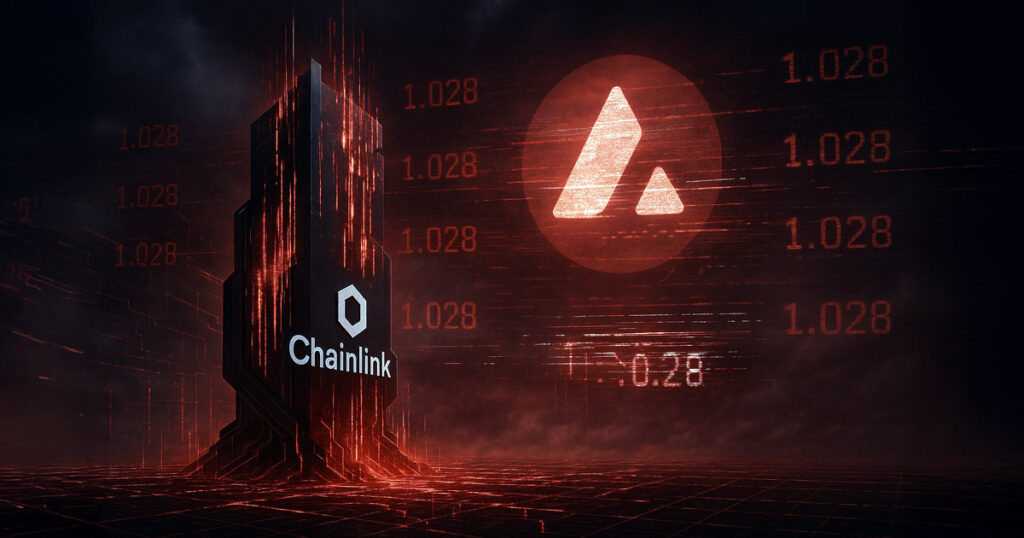Chainlink Price Feed Allegedly Malfunctions, Sparks $500,000 in Liquidations
A recent incident involving a Chainlink price feed has caused chaos in the DeFi world, resulting in over $500,000 in liquidations on May 29. The alleged malfunction of the price oracle for the deUSD stablecoin on Avalanche’s Euler Finance lending protocol has raised concerns about the reliability of oracles in decentralized finance.
The problem arose when Chainlink’s price oracle inaccurately reported the value of deUSD at $1.03. This misinformation led to forced liquidations for users who held deUSD-denominated debt, causing significant losses for those leveraging the asset known for its high-yield potential.
deUSD, issued by Elixir, has a total supply of $185 million, with $42.7 million circulating on Avalanche. Traders often use deUSD as collateral due to its yield profile, allowing them to leverage positions up to 10x to pursue higher returns. However, this leverage became detrimental when the incorrect price data triggered a cascade of liquidations.
The incident has reignited discussions about the vulnerabilities of on-chain oracles. Critics argue that these systems are susceptible to errors and manipulation, particularly in illiquid markets. Omer Goldberg, founder of Chaos Labs, criticized Chainlink for delaying a crucial price update by 25 minutes and raised concerns about the reliance on APIs like CoinGecko for stablecoin pricing.
Goldberg also highlighted the risks of using volume-weighted average price (VWAP) in illiquid pools, stating that it exposes protocols to exploitation. He questioned the effectiveness of Chainlink’s oracle in securing value and protecting users if it merely provides pool prices without additional safeguards.
In response to the criticism, Chainlink’s Community Liaison, Zack Rynes, defended the oracle’s role as a provider of aggregated market data. Rynes emphasized that it is the responsibility of individual protocols to interpret and filter the data according to their requirements. He explained that Chainlink accurately captured the price movements in a Curve pool that contributed to the mispricing of deUSD.
Marc Zeller of the Aave Chan Initiative weighed in on the debate, cautioning against treating volatile or illiquid assets as mature collateral. He warned against labeling risk shortcuts as innovation, as it ultimately puts users at risk. Zeller commended Chainlink for fulfilling its role as a data provider and emphasized the importance of protocols implementing additional checks to safeguard against such incidents.
As the industry continues to grapple with the implications of this event, it serves as a reminder of the challenges and complexities involved in building a reliable decentralized financial ecosystem. The incident underscores the need for robust risk management practices and the importance of thorough due diligence when leveraging DeFi platforms.

